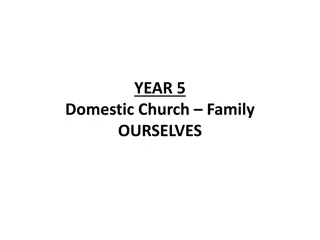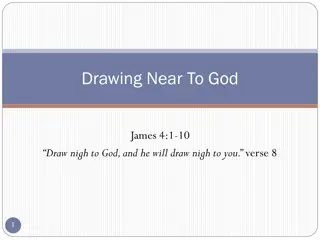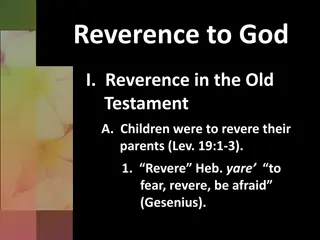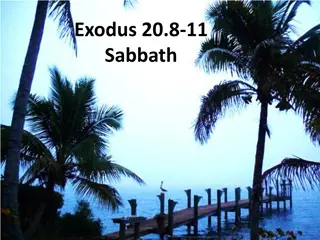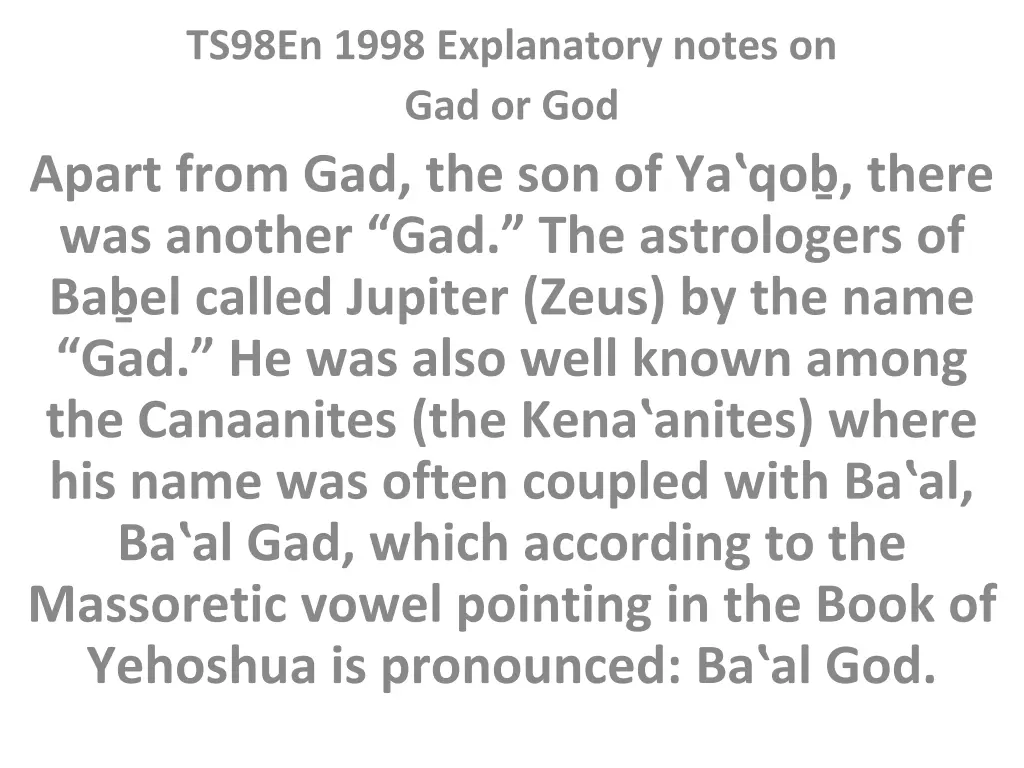
Explanatory Notes on Gad: Tracing the Origins of the Name
Discover the ancient roots of the name Gad, its connections to different cultures, and its significance as a deity associated with luck and fortune. Explore how this name evolved across languages and its symbolic meanings throughout history.
Download Presentation

Please find below an Image/Link to download the presentation.
The content on the website is provided AS IS for your information and personal use only. It may not be sold, licensed, or shared on other websites without obtaining consent from the author. If you encounter any issues during the download, it is possible that the publisher has removed the file from their server.
You are allowed to download the files provided on this website for personal or commercial use, subject to the condition that they are used lawfully. All files are the property of their respective owners.
The content on the website is provided AS IS for your information and personal use only. It may not be sold, licensed, or shared on other websites without obtaining consent from the author.
E N D
Presentation Transcript
TS98En 1998 Explanatory notes on Gad or God Apart from Gad, the son of Ya qob , there was another Gad. The astrologers of Bab el called Jupiter (Zeus) by the name Gad. He was also well known among the Canaanites (the Kena anites) where his name was often coupled with Ba al, Ba al Gad, which according to the Massoretic vowel pointing in the Book of Yehoshua is pronounced: Ba al God.
This same name is discovered in the ancient Germanic languages as Gott, Goda, Gode, God, Gud, Gade. And searching further back into its Indo-Germanic (Indo- European) roots, we find that it traces back to the word GHODH, which means union, even sexual union. No wonder this meaning is still evident in the Dutch and German gade. It is also not difficult to see it in the English gadfly and gadding about.
theos Thayer Definition: 1) a god or goddess, a general name of deities or divinities Greek 2316
Theos theh'-os Of uncertain affinity; a deity, especially (with G3588) the supreme Divinity; figuratively a magistrate; by Hebraism very: - X exceeding, God, god [-ly, -ward]. Strong s Hebrew Greek Dictionary
International Standard Bible Encyclopedia Gad (3) ( , gadh, fortune ): A god of Good Luck, possibly the Hyades. The writer in Isa_65:11 (margin) pronounces a curse against such as are lured away to idolatry. The warning here, according to Cheyne, is specifically against the Samaritans, whom with their religion the Jews held in especial abhorrence. The charge would, however, apply just as well to superstitious and semi-pagan Jews. But ye that forsake YHUH , that forget my Kodesh mountain, that prepare a table for Fortune, and that fill up mingled wine unto Destiny;
Continued; ISBE Canaanitish place-names also attest the prevalence of the cult, as Baal-gad, at the foot of Hermen (Jos_11:17; Jos_12:7; Jos_13:5); Migdal-gad, possibly Mejdel near Askalon (Jos_15:37); Gaddi and Gaddiel (Num_13:10 f). In Talmudic literature the name of Gad is frequently invoked (compare McCurdy in Jewish Encyclopedia, V, 544). Indeed the words of Leah in Gen_30:11 may refer not to good fortune or luck but to the deity who was especially regarded as the patron god of Good Fortune (compare Kent, Student's Old Testament, I, 111). Similar beliefs were held among the Greeks and Romans, e.g. Hor. Sat. ii.8, 61:
Continued ISBE The question has also an astronomical interest. Arabic tradition styled the planet Jupiter the greater fortune, and Venus the lesser fortune. Jewish tradition identified Gad with the planet Jupiter, and it has been conjectured that Meni is to be identified with the planet Venus. See, however, ASTROLOGY, 10.
Easton Bible Dictionary God (A.S. and Dutch God; Dan. Gud; Ger. Gott), the name of the Divine Being. It is the rendering (1.) of the Hebrew 'El, from a word meaning to be strong;
Wikipedia Encyclopedia The English word God continues the Old English God (gu , gudis in Gothic, gud in modern Scandinavian, God in Dutch, and Gott in modern German), which is thought to derive from Proto-Germanic * u n
Continued Wikipedia Obsolete etymologies In 19th century scholarship, there were a number of alternative etymologies suggested. Morgan Peter Kavenaugh in The Origin of Language and Myths claimed that the word god was taken from the Buddha's patriarchal name of Gotama. John Campbell connected further theonyms, "I have shown elsewhere that the English word God, the German Gott, the Persian Khoda and the Hindustani Khuda are all derived from the same root as that which appears in Celtic Aeddon or Guydion, the Germanin Odin, Woden or Goutan and the Indian Buddha or Gotama."[2]The Reverend Henry Scadding D.D. and Henry Le Mesurier in his book Mer-cur-ius, or The Word Maker, also connected Lombard Guodan to Gotama Buddha.[3]The connection of Gwydion with Wotan (but not with god) is due to Jacob Grimm
Continued Wikipedia Proto-Germanic name of a god of Germanic paganism, known as Odin in Norse mythology, W den in Old English, Wodan or Wotan in Old High German and Godan in the Lombardic language. Godan was shortened to God over time and was adopted/retained by the Germanic peoples of the British isles as the name of their deity, in lieu of the Latin word Deus used by the Latin speaking Christian church, after conversion to Christianity.
Continued Wikipedia Augustine of Canterbury. Augustine's mission to the Saxons in southern Britain was conducted at a time when the city of Rome was a part of a Lombardic kingdom. The translated bibles which they brought on their mission were greatly influenced by the Germanic tribes they were in contact with, chief among them being the Lombards and Franks. The translation for the word deus of the Latin bible was influenced by the then current usage by the tribes for their highest deity, namely Wodan by Angles, Saxons and Franks of north- central and western Europe and Godan by the Lombards of south-central Europe around Rome. There are many instances where the name Godan and Wodan are contracted to God and Wod.[
Word Origin & History;From On line Dictionary god O.E. god "supreme being, deity," from P.Gmc. *guthan (cf. Du. god, Ger. Gott, O.N. gu , Goth. gu ), from PIE *ghut- "that which is invoked" (cf. Skt. huta- "invoked," an epithet of Indra), from root *gheu(e)- "to call, invoke." But some trace it to PIE *ghu-to- "poured," from root *gheu- "to












